
15311826613
Click to add WeChatVanadium is used in various fields such as steel, nonferrous metals, chemical industry, optics, electronics, energy storage, medicine, and atomic energy. The addition of vanadium can effectively consolidate various properties. For example, adding a certain amount of vanadium to steel can significantly improve its strength, toughness, ductility, damage resistance and heat resistance; adding a certain amount of vanadium to titanium alloy materials can make It has better ductility and plasticity. Vanadium titanium magnetite is the main mineral resource for obtaining vanadium. So how to extract vanadium from vanadium titanium magnetite? We use a case to introduce its mineral processing process.
The raw ore grades of this vanadium-titanium magnetite are Fe27.79%, TiO25.83%, and V2O50.29%. The harmful elements are sulfur and phosphorus, and their contents are low. It is an acidic poor vanadium-titanium magnetite with low sulfur and low phosphorus.
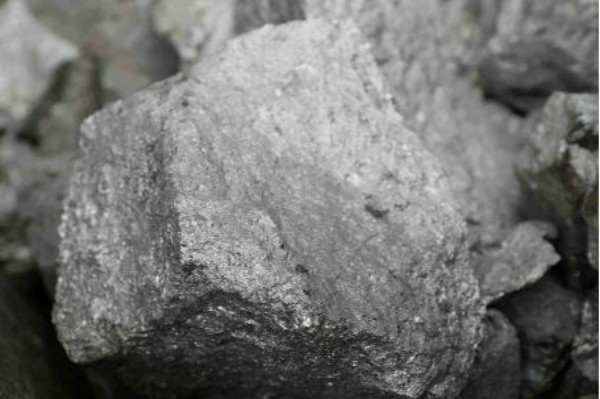
After many ore sample tests and analyzes of the ore, a process flow of crushing-grinding-ferromagnetic separation-titanium classification and gravity separation was designed.
The vanadium-titanium magnetite crushing stage adopts a two-stage closed-circuit crushing process. The raw ore (the particle size after mining is less than 250mm) is fed into a jaw crusher by a feeder for coarse crushing, and the crushed product is fed into a vibrating screen ( Screen hole 15mm), the material above the screen enters the two-stage spring crusher for fine crushing, and the crushed products are sent to the storage bin for storage together with the products under the screen after coarse crushing in the first stage.
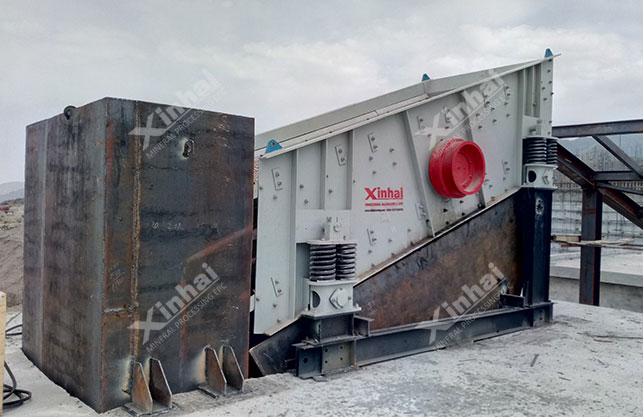
When the second-stage crushed product passes through the belt conveyor, a magnetic roller will be installed above it. When the minerals pass by, the magnetic minerals can be selected first.
The grinding stage of vanadium-titanium magnetite adopts a stage grinding process (two-stage closed-circuit grinding process). Before entering the grinding stage, a magnetic roller is set above the belt conveyor after the second stage of crushing. When the mineral passes through, the coarse The particle size is reduced, which reduces the power consumption of the grinding operation. This stage uses two grid-type ball mills and two spiral classifiers as the main equipment. The final product particle size range after grinding is -200 mesh accounting for 65%.
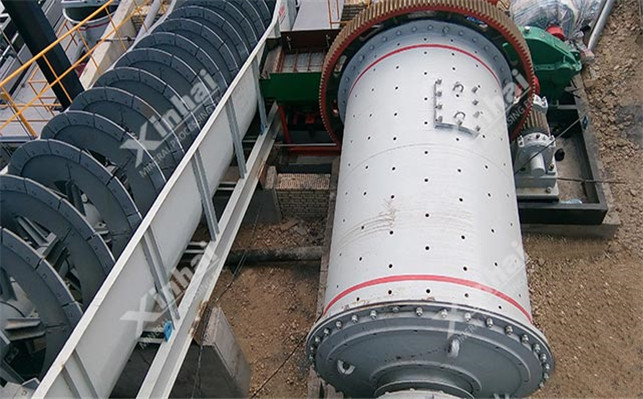
The target ore of iron selected in this mine is magnetite, and the mutual coefficient is >42*105m2/g, which is more than 200 times that of other minerals. Therefore, the weak magnetic separation method can be used to recover the iron concentrate, mainly using two stages. In the weak magnetic separation process, the roughing magnetic field intensity is 0.109T and the selected magnetic field intensity is 0.0914T. The magnetic separation equipment used is a permanent magnet drum magnetic separator. The final iron concentrate grade is 60.81% and the yield is 64.89%.
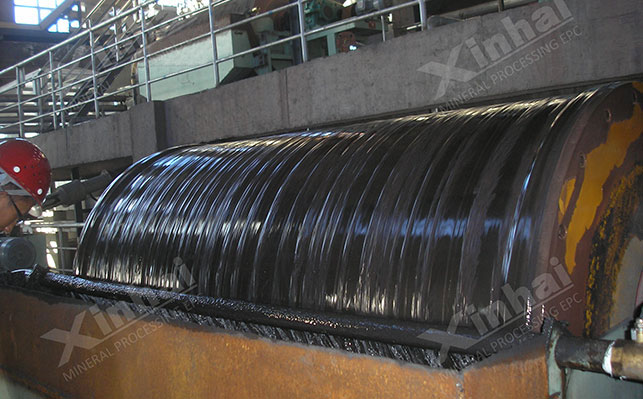
In this stage, the cyclone classification is used first, and then the medium ore rewashing process is repeated on the shaker. In addition to this process, there are two processes available: strong magnetic flotation and strong magnetic re-selection.
Strong magnetic flotation: This process is aimed at recovering vanadium, and its recovery rate is relatively stable. However, it is mostly used in medium and large-scale mineral processing plants, and the production cost is high. In addition, the flotation stage of this link is still in the experimental stage, and almost There is no economic benefit.
Strong magnetic-gravity separation: This method uses gravity separation instead of flotation. The recovery rate can only reach 34.08%. Moreover, the equipment selected in the magnetic separation stage is more expensive and has many other supporting equipment. It is also suitable for medium and large-scale mineral processing plants. A small dressing plant requires a large investment.
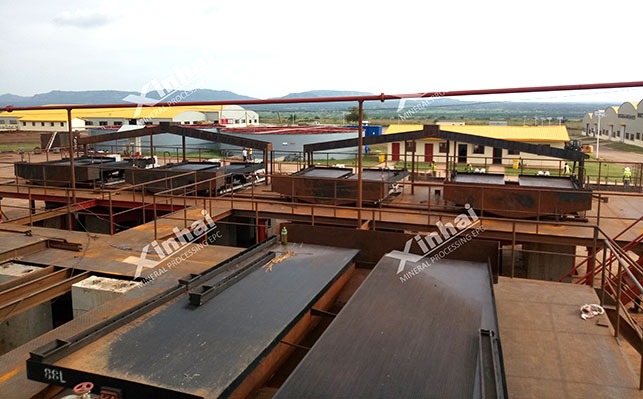
This stage uses cyclone classification (the tailings after magnetic separation are classified by cyclones to reduce the impact of small particle size) - the process of rewashing the ore in the shaking table. The process is simple and the work is stable and reliable. Small-scale concentrator has a classic process, but its recovery rate is low. In order to better recover the vanadium in the minerals, the gravity separation part uses coarse sand shakers (4 units) and fine sand shakers (6 units) for rough separation, and the medium ore shakers are washed again (1 coarse sand shaker, 1 coarse sand shaker, 2 sets of fine sand shakers), and finally obtained titanium concentrate with a grade greater than 47%, with a recovery rate of up to 25%.
The above is an introduction to the mineral processing process of a certain vanadium-titanium magnetite. In the actual mineral processing plant, how to choose the vanadium-titanium magnetite process needs to be determined based on its mineral properties and types. At the same time, the location and location of the customer's dressing plant must also be considered. Production conditions, etc., because it is recommended to carry out mineral processing test analysis, and through analysis and design of a process plan suitable for the plant, the ideal return on investment has been achieved.